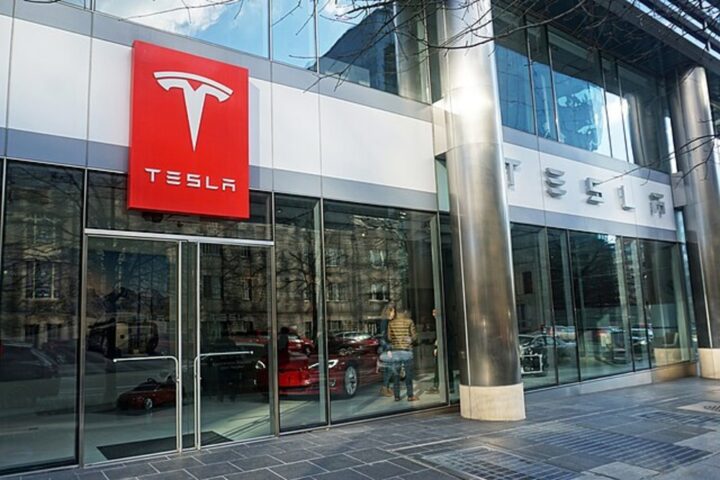Rep. Carolyn B. Maloney, Chairwoman of the Oversight and Reform Committee, and Rep. Ro Khanna, Chairman of the Subcommittee on Environment, issued a new report and documents demonstrating how the oil and gas industry engages in “greenwashing” to hide long-term financing in fossil fuels and inability to fruitfully cut emissions. The documents are part of the Committee’s ongoing inquiry into the role of the fossil fuel sector in promoting climate misinformation and hindering climate change action. The study revealed that, despite public pledges that fossil fuels are only a “bridge fuel” to cleaner energy sources, Big Oil has increased its long-term dependency on fossil fuels without a plan to take effective measures towards shifting to clean energy.
According to a strategy PowerPoint provided to the Chevron Board of Directors by CEO Mike Wirth, while Chevron sees “traditional energy business competitors retreating” from oil and gas, “Chevron’s strategy” is to “continue to invest” in fossil fuels to capitalize on industry consolidation.
Despite officially stating its support for the Paris Agreement goals, BP continues to invest in a future based on fossil fuels. BP stated its intention to “significantly increase development in regions with oil potential” and to “focus primarily on projects in current basins that generate the highest rate of return” in an internal Q3 2017 Operational Performance Review for the lower 48 states.
According to an internal communication from the American Petroleum Institute (API), the API’s 2021 Climate Action Framework was designed to “maintain the marketing of natural gas in a carbon limited economy.” The industry’s weak climate promises and commitment to emissions reductions are designed to allow Big Oil to continue raking in billions of dollars from the sale of fossil fuels for decades to come.
CEO Mike Sommers explained in a March 2021 memorandum to API’s Board of Directors that API tactically facilitates definite initiatives aimed at lowering climate pollution in order to secure the legitimacy to continue producing fossil fuels, indicating that lowering emissions from flaring displayed “an opportunity to further secure the industry’s license to operate.”
A public relations agency advised campaigning for methane regulation in an internal BP presentation to “advance and defend the role of gas – and BP – in the future of energy conversation.”
BP America’s Chairman confessed in notes titled “Chairman’s Report to BPA Board” in May 2019 that “we continue to balk at taking responsibly for the emissions of our products.” The Chairman was talking about shareholder resolutions concerning climate change initiatives submitted at the prior year’s investor meeting. BP’s climate pledge at the time did not include emissions from the combustion of BP’s commodities, a position that BP has since reversed but Exxon maintains.
Shell CEO Ben Van Beurden called a public speech by an environmental advocate at an industry event “disingenuous” for “pointing out in front of the international press that if you burden the gas value chain with all of the emission of the oil industry, it would put gas on a par with coal.”
Privately, fossil fuel companies confess privately that they have followed a tactic of “resisting and blocking” climate regulations, that they will only cut emissions “where it makes commercial sense,” and that a key component of their climate schemes is selling assets to other oil corporations which does not reduce emissions.
In a 2016 email about climate and emissions trading from a BP executive to John Mingé, Chairman and President of BP America, and others, an employee assessed that the company frequently adopted an opposing approach with regulators, stating, “we wait for the rules to come out, we don’t like what we see, and then try to resist and block.”
“True, when we divest, we transmit CO2 liability,” a Shell executive conceded privately. “And now we’ve been called on it” he added. In response, a second firm executive supported the practise, stating, “what precisely are we expected to do instead of divesting…?” throw concrete over the oil sands and burn the land deed so no one can acquire them?”
One BP official confessed privately that divesting fossil fuel assets is “an important part of our strategy,” but although “these divestments may not directly lead to a decrease in absolute global emissions.” The fossil fuel industry has sought to keep the truth about its actions hidden by refusing to fully comply with the Committee’s subpoenas and assaulting journalists who have exposed the sector’s behavior.
Despite being ordered to produce internal papers by the Committee, the Chamber of Commerce has refused. The American Petroleum Institute hid information from its Executive Committee and Board of Directors in an unethical manner. Exxon improperly censored responsive papers from its Board of Directors, while Chevron, Shell, and BP withheld responsive information without explanation.
Exxon wrongly accused a journalism student and her trainer of deception and ethical breaches in 2015, after her work led to press coverage of the fossil fuel industry—but company’s internal papers obtained by the Committee demonstrate that Exxon’s charges were untrue.
“Even though Big Oil CEOs admitted to my Committee that their products are causing a climate emergency, today’s documents reveal that the industry has no real plans to clean up its act and is barreling ahead with plans to pump more dirty fuels for decades to come,”
“Today’s new evidence makes clear that these companies know their climate pledges are inadequate, but are prioritizing Big Oil’s record profits over the human costs of climate change. It’s time for the fossil fuel industry to stop lying to the American people and finally take serious steps to reduce emissions and address the global climate crisis they helped create.”
Chairwoman Maloney
“We cannot tackle the climate crisis until we tackle the climate disinformation crisis. Big Oil has misled the American public for decades about the reality of the climate crisis. It’s past time to hold the entire industry accountable for its role in funding and facilitating that disinformation. As Chair of the Subcommittee on the Environment, I partnered with Chairwoman Maloney to hold historic hearings forcing CEOs from Exxon, Chevron, Shell, BP, API, and the U.S. Chamber of Commerce to testify under oath about efforts to mislead the public and subpoena them for explosive internal documents. The hearing testimony and documents released will stand the test of time and further our understanding of how these companies operate. Going forward, I will ensure our work to hold Big Oil accountable continues,”
Rep. Khanna.


















